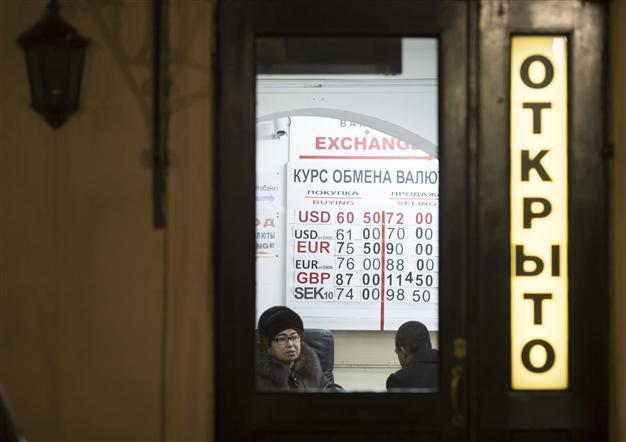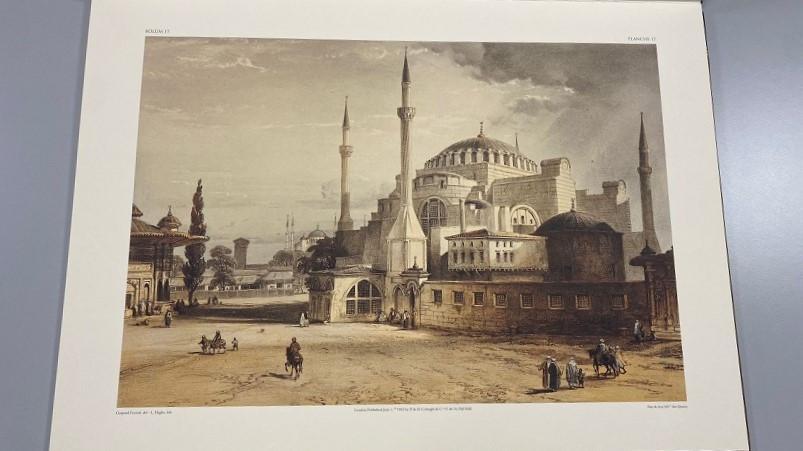Ruble rallies in early trading on day of Putin press conference
MOSCOW - Agence France-Presse

People wait in line at a currecy exchange office in St.Petersburg, Russia, Wednesday, Dec. 17, 2014. AP Photo
The ruble rallied in early trading Dec. 18 ahead of President Vladimir Putin's eagerly-awaited annual press-conference, where he is expected to give his views on the financial crisis rocking Russia.The ruble was trading at around 58 to the dollar and 72 to the euro -- the levels of last Friday -- after closing at 60.65 to the dollar and 75.10.
Putin will begin his press conference at 0900 GMT. The marathon event sees him face hundreds of journalists from all over Russia.
The Kremlin has remained silent this week on the issue of the ruble's crash, which took it to historic lows of 80 to the dollar and 100 to the euro and led Russians to rush to exchange their savings and make a run on stores to dump the devaluing national currency ahead of expected price hikes.
Economy minister Alexei Ulyukayev told Vedomosti daily in an interview published Thursday that Russia's economy was going through a "crisis".
"I guess we found ourselves in a perfect storm, and I guess it's not an accident. Because in some way we prepared this storm ourselves," he said in an interview conducted Monday, before the record Tuesday crash of the ruble.
"We are issuing ad hoc reactions, the situation is so unpredictable that we cannot be ready for future changes," he admitted.
Several observers have said that the record slump of the ruble has to do not only with the global decrease of oil prices on which Russia depends, and Russia's financial isolation due to Western sanctions over Ukraine, but also the perceived lack of strategy by the leadership during the worst economic crisis of Putin's 15 years in power.
The government this week said they were preparing a set of measures to save the ruble, which Putin is expected to outline Thursday.
The state statistics agency said Wednesday that real wages have declined in the first 11 months of the year for the first time in years.
Both the economy ministry and the central bank have warned of recession next year, with the latter saying the contraction could be up to 4.8 percent at current oil prices, with a recovery not expected until 2017.
Officials have begun to call on Russians to take on the economic burden as payment for the annexation of Crimea.
"What is happening now is the price that one must pay for political victories and Russia's resurgence," the governor of Krasnodar, Alexander Tkachev, said Wednesday.
















